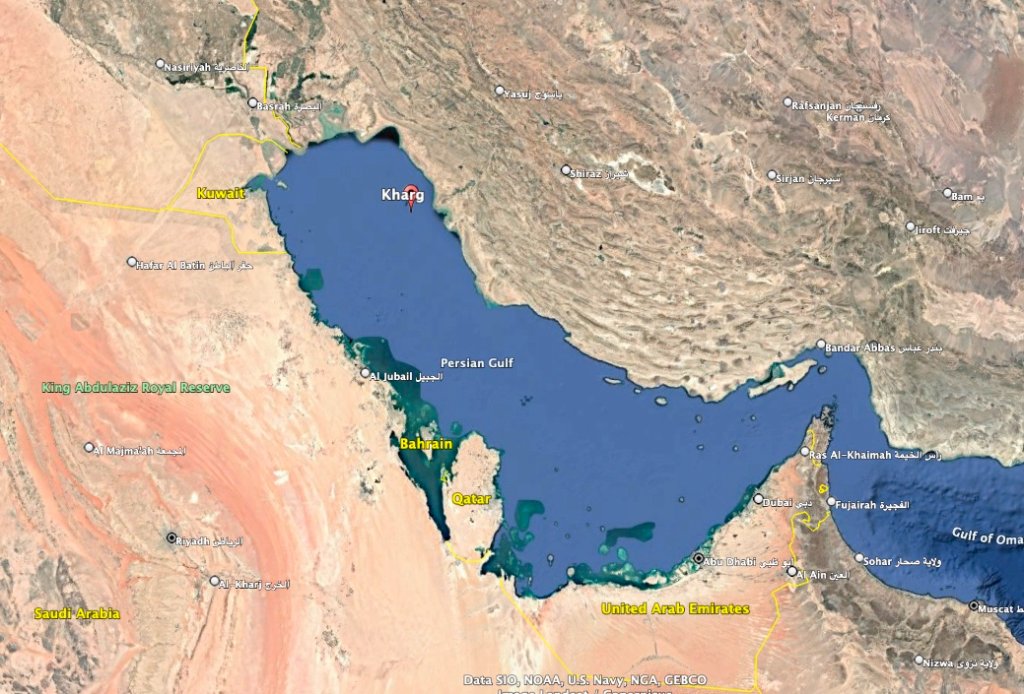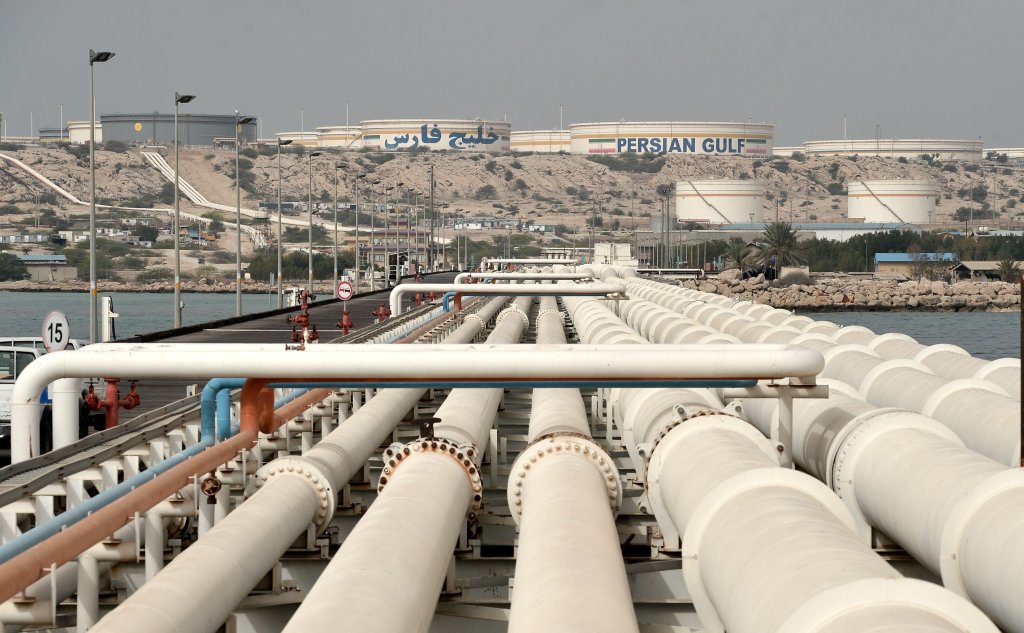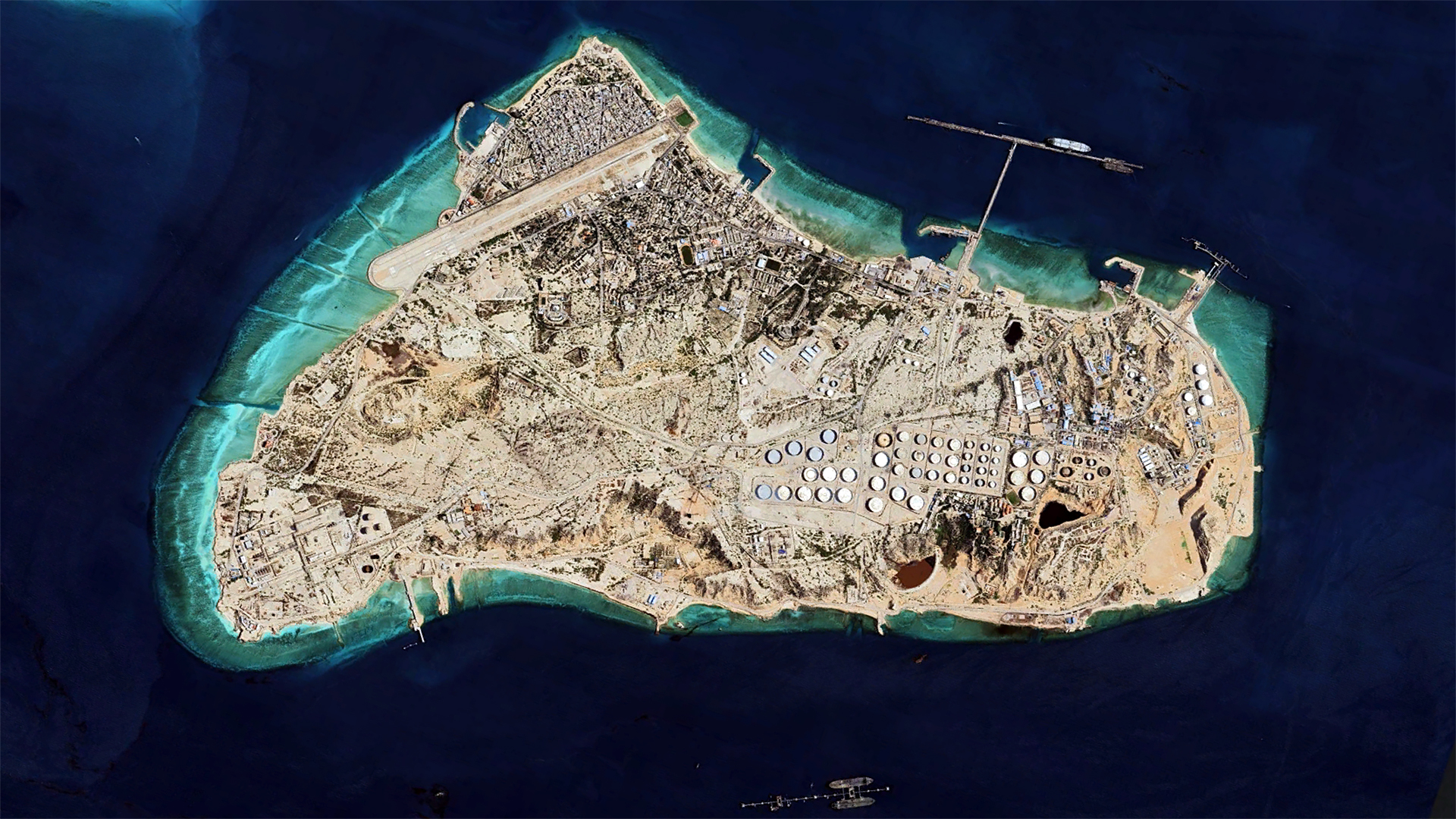Iranian oil tankers have fled Kharg Island ahead of a potential retaliation strike by Israel which has vowed vengeance for Tuesday’s massive Iranian missile barrage. The island, handling 90% of Iran’s oil exports, is thought to be at the very top the reprisal target list for Israel.
“The National Iranian Tanker Company (NITC) appears to be fearing an imminent attack by Israel,” TankerTrackers reported on Twitter Thursday afternoon. “Their empty [Very Large Crude Carrier] VLCC supertankers vacated the country’s largest oil terminal, Kharg Island, yesterday.”
The facility, about 20 miles west of Iran in the northern Persian Gulf, is still loading ships, TankerTrackers noted. However, “all of the extra vacant shipping capacity has been removed from the anchorage of Kharg Island. This is the first time we have seen anything like this since the 2018 sanctions round.”

The HunterBrook media outlet analyzed 105 satellite images of Iranian tankers dating back to November “showing this is the first time that all the tankers have been gone from the anchorage.”
Earlier on Thursday, U.S. President Joe Biden suggested an Israeli strike against Iran’s oil infrastructure was not off the table.
“We’re in discussion of that. I think that would be a little… anyway,” Biden told reporters at the White House when asked if he supported Israel hitting Iran’s oil facilities.
Many Israeli officials “point to Iran’s oil facilities as a likely target, but some say targeted assassinations and taking out Iran’s air defense systems are also possibilities,” Axios reported. “The Israeli response could include airstrikes from fighter jets as well as clandestine operations similar to the one that killed Hamas leader Ismail Haniyeh in Tehran two months ago.” This largely matches our analysis from Tuesday.

S&P Commodity Insights said oil and gas prices have already spiked globally after Iran’s attack on Israel.
“Brent crude prices jumped 5% on Oct. 1 and global energy markets were on tenterhooks after Iran launched a new missile attack on Israel, sparking concerns of a major regional escalation and a direct conflict between Israel and Iran.”
Prices could go higher should Israel attack Iranian oil facilities. Not only would that affect Iranian exports, but Israel too produces oil and could be hit by any Iranian response.
“The attack by Iran through missile strikes into Israel escalates the existing conflict between Israel and Hezbollah and Israel and Hamas, and likely puts at least some Israeli oil infrastructure, including 287,000 b/d of Israeli refining capacity, at greater risk,” oil analysts at S&P Global Commodity Insights said in a note.
The company produced a map showing Iranian oil refineries Israel could potentially strike.
As we noted Wednesday, the Chief of Staff of the Israeli Army said there will be retribution.
“We will respond, we know how to locate important targets, we know how to strike with precision and power,” said Lt. Gen. Herzi Halevi. “We have the capabilities to reach and strike any point in the Middle East. And those of our enemies who have not yet understood this, will soon understand.”
Our analysis also pointed to Iran’s oil infrastructure as the most likely target set for Israel to hit just after the ballistic missile barrage occurred. Not only would destroying the country’s primary energy export terminal have major economic impacts for Iran, but accessing the target would be less complicated and risky for Israel than executing strikes deeper in Iran, especially against hardened nuclear or regime targets and/or dispersed military capabilities.
Still, Israel could always choose another route, including one less conventional. With the ongoing direct military operations now on two fronts, Gaza and Lebanon, the IDF certainly has its hands full and the big question then is what will Iran do in response to such a strike. The escalation ladder it steep and largely unexplored at this point.
Contact the author: howard@thewarzone.com
